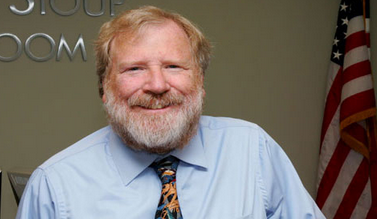German speaking rightists love this rhetorical formulation. There is a Swiss scholar who urges tax competition as a means of depriving governments of revenue so that they cannot fund social programs. He loves bank secrecy in Switzerland as a device to encourage tax fraud by foreigners. His version is: "Der Schutz der Privatsphà �re geht vor, ohne Wenn und Aber." The right of privacy (in the form of bank secrecy) comes before everything without any "if" or "but."
The reality, as even the NYT admitted is that the AfD's support comes overwhelmingly from the German regions in which the ultra-rightists are most common.
"GÃ �llner, head of the Forsa polling firm in Berlin, pointed out that in the May elections for the European Parliament, the AfD did especially well in voting districts seen as bastions of far-right sympathy, such as a region in southeastern Germany known as Saxon Switzerland. While Mr. Henkel helps lend the party an air of respectability, Mr. GÃ �llner said, 'in my eyes it's almost an extreme-right party.'"
If the AfD has to rely on Henkel and his ilk for "an air of respectability" it is not "almost an extreme-right party," it is an ultra-right party.
The AfD's Gain is Bank of America's Gain
Bank of America chose Henkel as its senior advisor in 2006. I wrote an open letter to B of A's Chairman of the Board of Directors explaining his racism and bigotry. Naturally, I never got a response. The good news is that Henkel's decision to run for the European Parliament led to him finally resigning from B of A. Unfortunately, he picked B of A's team of European advisors, so the B of A's rot continues.
Bank of America has Forgotten its Roots, but American Must Not do So
June Carbone (my spouse) and I lived in the San Francisco area for 20 years. We are steeped in the proud history of the origins of the Bank of America. Mr. Giannini's Bank of Italy was proud to lend to "fruit and vegetable owners." Many of these small entrepreneurs were recent immigrants from Italy. Like the "fruit and vegetable" entrepreneurs that Mr. Sarrazin and Mr. Henkel despise, they often faced deep suspicion because of their accents, their national origins, and their religion (Catholicism). This was the era of "scientific racism" and educated people "knew" that immigrants from Southern Europe, and Italy in particular, were inferior.
B of A is no longer B of A. It's a North Carolina bank that acquired B of A and decided that the name "Bank of America" was a superior marketing tool. Today's senior management at B of A sought out Henkel to be their face in Europe and never publicly criticized his odes to U.S. racism or German bigotry.
The NYT and the Struggle against Stereotypes
The NYT can't even be bothered to use a search engine before it canonizes Henkel as the exemplar of the ultra-rightist free from any tint of bigotry. The NYT's talent for unintentional self-parody grows by the day. Recall that part of its ode to Henkel is his ability, due to his stellar reputation, to prevent the AfD, The Finns, and the Danish People's Party from being "stereotype[d]" as "right-wing cranks."
"Still, Mr. Henkel may make it harder to stereotype anti-euro forces in the European Parliament as a collection of right-wing cranks."
We certainly wouldn't want to "stereotype" "populists" and "contrarians" whose standard operating procedure is stereotyping blacks, immigrants, Muslims, Italians, and Greeks. When Henkel says that the global crisis was caused by banks lending to blacks and agrees ("ohne Wenn und Aber") that "Arabs and Turks" are worthless for any task beyond being a fruit and vegetable vendor, are debasing German IQs, and outbreeding native Germans while Jews are vastly smarter we know that we can with confidence denounce anyone that would stereotype the eurozone's ultra-right.
The Right and the Ultra-Right's War on the People of Europe
Henkel, Sarrazin, Hummler, and Bernd Lucke (a macroeconomist formerly employed by the German central bank, the founder and leader of the AfD).are representative of the Germanic economic consensus in favor of the self-destructive austerity regime that thrust the eurozone back into a gratuitous second recession and Spain, Greece, and Italy -- with one third of the total population of the eurozone -- into Great Depression levels of unemployment. The NYT sees none of this.
"The introduction of the euro was and remains the right thing," said Ulrich Grillo, president of the Federation of German Industries, a group that Mr. Henkel led from 1995 to 2000. "Especially for Germany and its export economy," Mr. Grillo said in an email exchange, "the common currency is the foundation of prosperity and employment."
(Note: You can view every article as one long page if you sign up as an Advocate Member, or higher).





